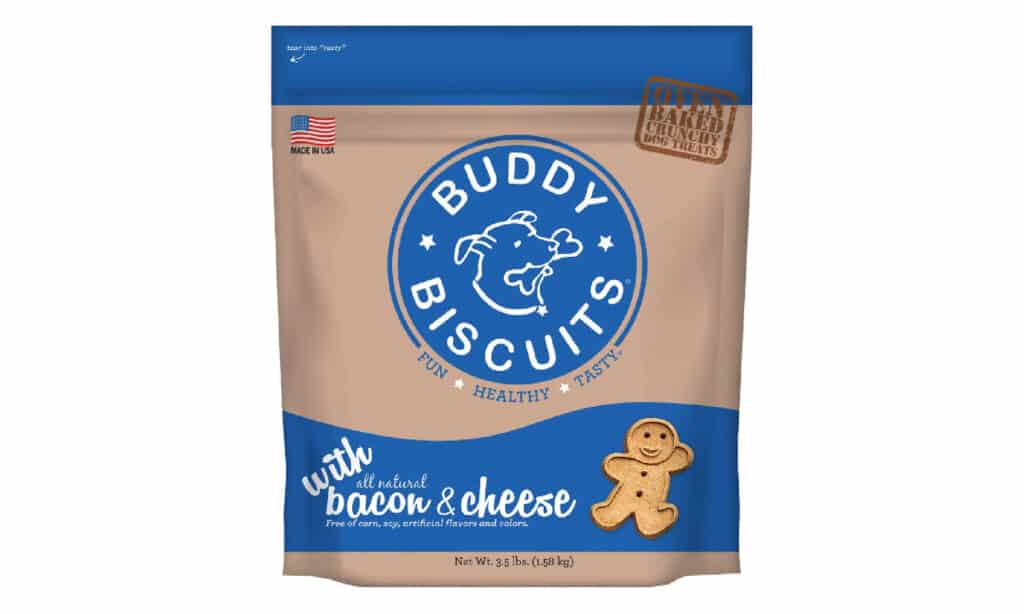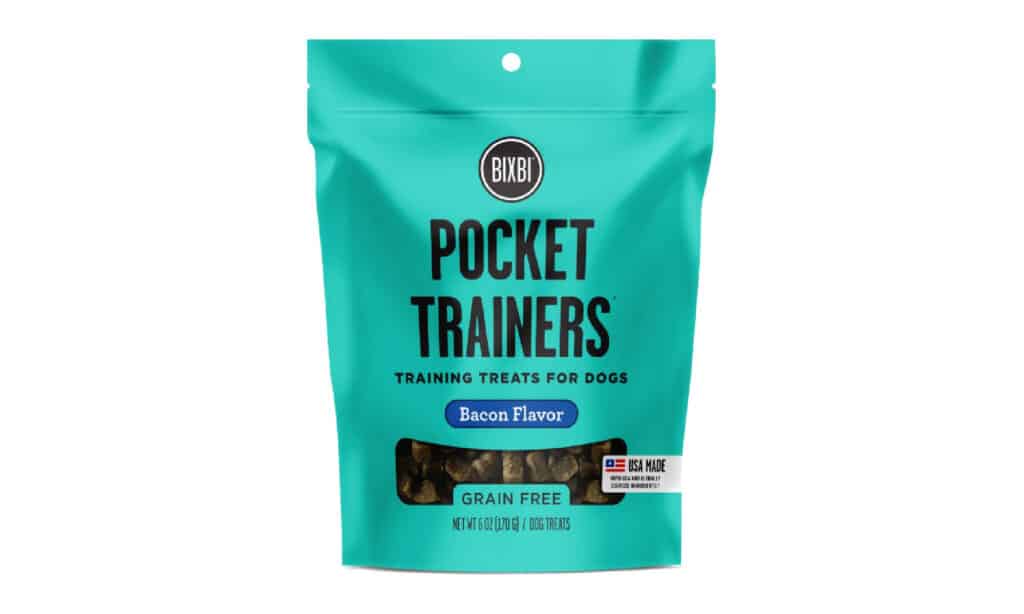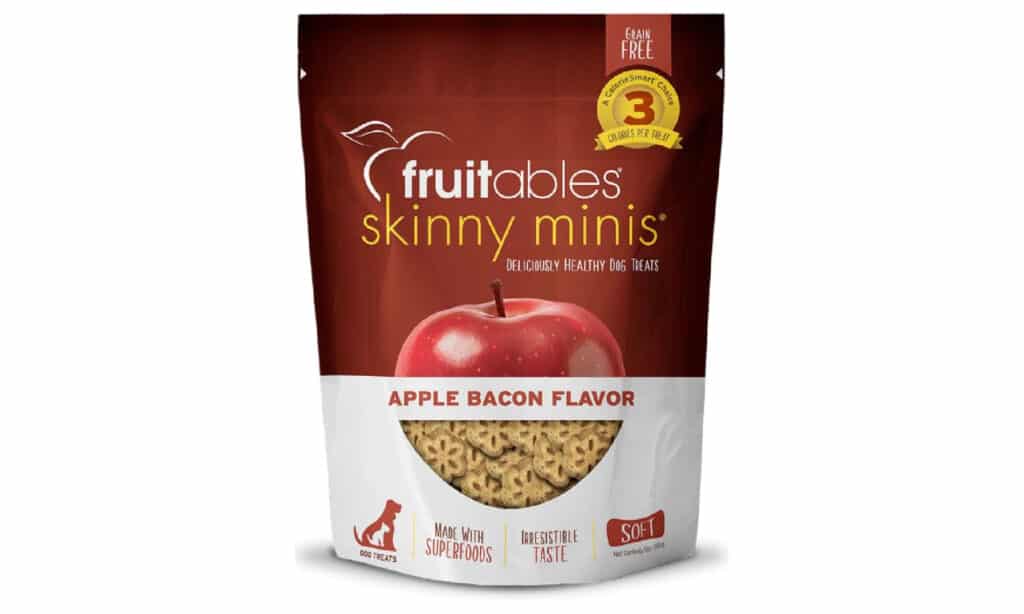Are you a dog owner who enjoys snacking on Ritz crackers? If so, you may have wondered whether your furry friend can indulge in this buttery, crispy treat as well. After all, dogs are known for their love of snacks and treats, and it can be tempting to share your own snacks with them. But before you toss a Ritz cracker their way, it’s important to know whether it’s safe for them to eat. In this blog post, we’ll explore can dogs have Ritz crackers and what you should keep in mind when considering sharing your snacks with your four-legged companion.
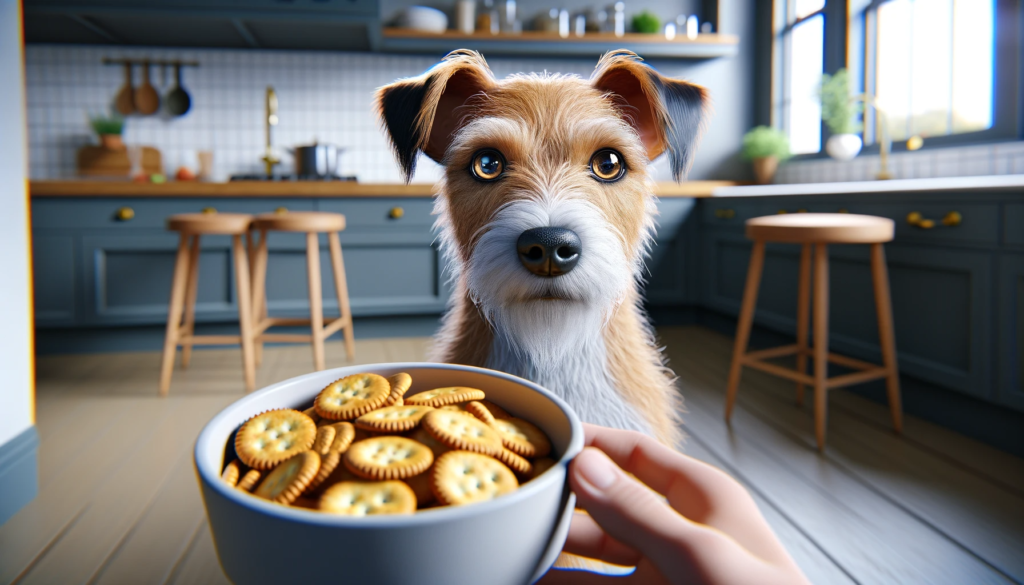
What Are Ritz Crackers?
Ritz crackers have been a beloved snack food for over 80 years, pleasing taste buds with their buttery flavor and satisfyingly crisp texture. Ritz crackers are versatile and can be eaten alone or used as a base for dips and toppings.
Nabisco, a prominent American snack food company, invented the original Ritz cracker in 1934. Since then, these crackers have become a household name, enjoyed by countless people worldwide. Ritz brand expanded to offer new styles and flavors, like whole wheat, reduced-fat, and sandwich-style crackers.
It’s important to note that while Ritz crackers are popular among humans, they’re not specifically designed for dogs. When considering Ritz crackers for dogs, keep their nutritional needs and sensitivities in mind.
Can Dogs Eat Ritz Crackers?
While dogs can technically eat Ritz crackers, it’s not recommended to make them a regular part of your dog’s diet. This is because Ritz crackers are high in salt, which can be harmful to your dog’s health if consumed in large quantities. Ritz crackers have wheat flour and seasonings that might not be good for all dogs.
If you do decide to give your dog a Ritz cracker as a treat, it’s essential to do so in moderation. Make sure to monitor how many crackers you give your dog and consider breaking them into small pieces to avoid any choking hazards. Watch for discomfort or digestive issues in your dog after they eat Ritz crackers.

Are There Any Harmful Ingredients in Ritz Crackers?
While Ritz crackers are generally considered safe for human consumption, they do contain some ingredients that may not be suitable for all dogs. For example, Ritz crackers are made with wheat flour, which can be a common allergen for dogs. Additionally, they contain seasonings and other flavorings that may cause digestive upset or allergic reactions in some dogs.
Another ingredient that may be harmful to dogs in large quantities is salt. Eating too many Ritz crackers can cause sodium poisoning in dogs due to their high salt content. Symptoms of this condition can include vomiting, diarrhea, and seizures, so it’s essential to monitor your dog’s salt intake carefully.
In general, it’s best to stick to dog-specific treats and snacks that are formulated to meet your pet’s nutritional needs. Make sure to introduce in moderation and keep an eye out for any signs of discomfort or illness.
Are There Any Safe Ingredients in Ritz Crackers?
Yes, there are some safe ingredients in Ritz crackers that can be enjoyed by dogs in moderation. For example, Ritz crackers are made with enriched flour, which provides some essential vitamins and minerals that dogs need, such as iron and thiamin. They also contain vegetable oil, which can provide some beneficial fatty acids for your dog’s overall health.
However, it’s important to keep in mind that Ritz crackers are not specifically formulated for dogs and should not be a regular part of their diet. Safe ingredients in Ritz crackers, but high salt and allergens may cause health issues in some dogs.
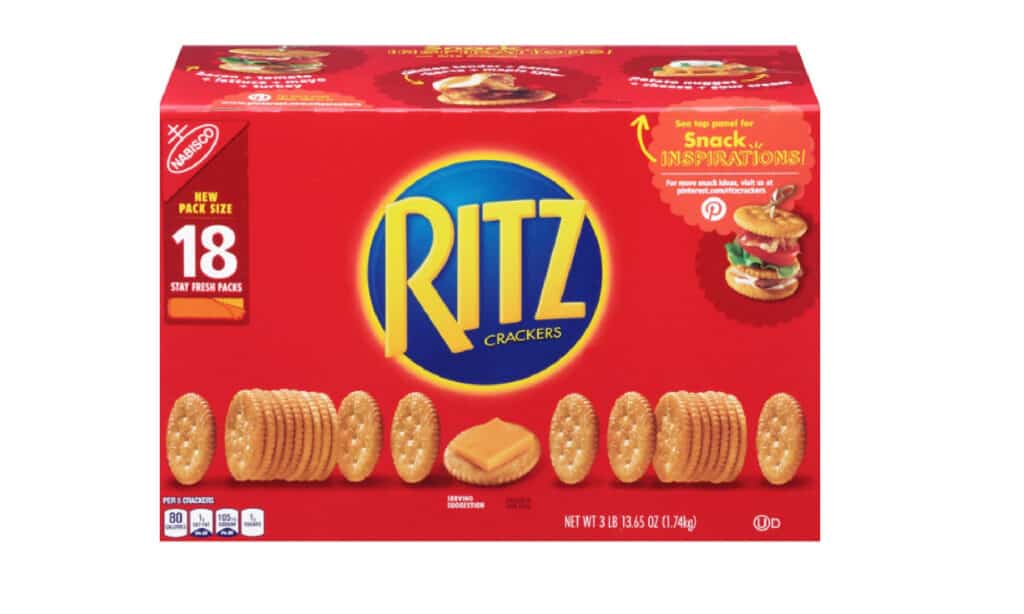
What Signs To Watch For If Your Dog Accidentally Ate A Lot of Ritz Crackers?
If your dog consumes a large amount of Ritz crackers, they may experience symptoms of salt toxicity. These symptoms can include vomiting, diarrhea, lethargy, excessive thirst or urination, tremors, seizures, and even coma. Ritz crackers have wheat flour, which is an allergen for dogs and can cause digestive upset or allergic reactions.
If you suspect that your dog has eaten too many Ritz crackers or is showing any signs of discomfort or illness, it’s essential to contact your veterinarian immediately. They can help you determine the severity of your dog’s condition and provide appropriate treatment.
To prevent accidental overconsumption of Ritz crackers or other human snacks, it’s important to keep them out of your dog’s reach and provide them with dog-specific treats and snacks that are formulated to meet their nutritional needs.
When or If You Should Go To The Vet?
If you suspect that your dog has consumed a large amount of Ritz crackers or is showing any signs of discomfort or illness, it’s important to contact your veterinarian immediately. Depending on the severity of your dog’s symptoms, they may require medical attention or supportive care.
Some signs that may indicate the need for veterinary attention include vomiting, diarrhea, lethargy, excessive thirst or urination, tremors, seizures, and even coma. If your dog is allergic to Ritz ingredients, seek vet care immediately.
If you’re unsure whether your dog requires veterinary attention, it’s always better to err on the side of caution and contact your veterinarian for guidance. They can help you determine the best course of action for your pet’s individual situation.
In general, you should keep human snacks and treats out of your dog’s reach and offer them treats and snacks that meet their nutritional needs. By doing so, you can help to prevent accidental overconsumption and potential health issues.

Safe Dog-Friendly Alternative to Ritz Crackers:
Here are some healthy alternatives to Ritz crackers that are safe for your dog to enjoy:
- Carrots: Dogs love the crunchy texture and sweet taste of carrots. A healthy and tasty snack for your furry friend, low in calories and high in vitamins and minerals.
- Apples: Apples are another favorite snack among many dogs. Remove apple seeds and core before giving to dogs; they’re a good source of fiber and antioxidants.
- Green beans: Dogs enjoy the crisp texture and mild flavor of green beans. They are also low in calories and high in fiber, which makes them an excellent snack for weight management.
- Plain, cooked chicken or turkey: Cooked chicken or turkey is a lean protein source that dogs love and is healthy for them. It’s important to remove any bones and skin before feeding it to your dog to avoid choking hazards.
- Peanut butter: Many dogs go crazy for peanut butter, and it’s a great source of protein and healthy fats. Just make sure to choose a brand that does not contain xylitol, which is toxic to dogs.
These are just a few examples of safe, dog-friendly alternatives to Ritz crackers.
Healthy Store-Bought Options:
In conclusion, while Ritz crackers are a tasty and popular snack among humans, they are not specifically formulated for dogs and should not be a regular part of their diet. Dogs can eat Ritz crackers in moderation, but the high salt content and potential allergens make them unsafe for all.
If you do decide to give your dog Ritz crackers or any other human snacks, it’s important to do so in moderation and monitor their reaction carefully. Give your dog treats that meet their unique nutritional needs instead of human snacks to keep them healthy.
By following these guidelines and consulting with your veterinarian, you can help ensure that your dog is getting the best possible nutrition and staying healthy and happy for years to come.
~Lindsie

